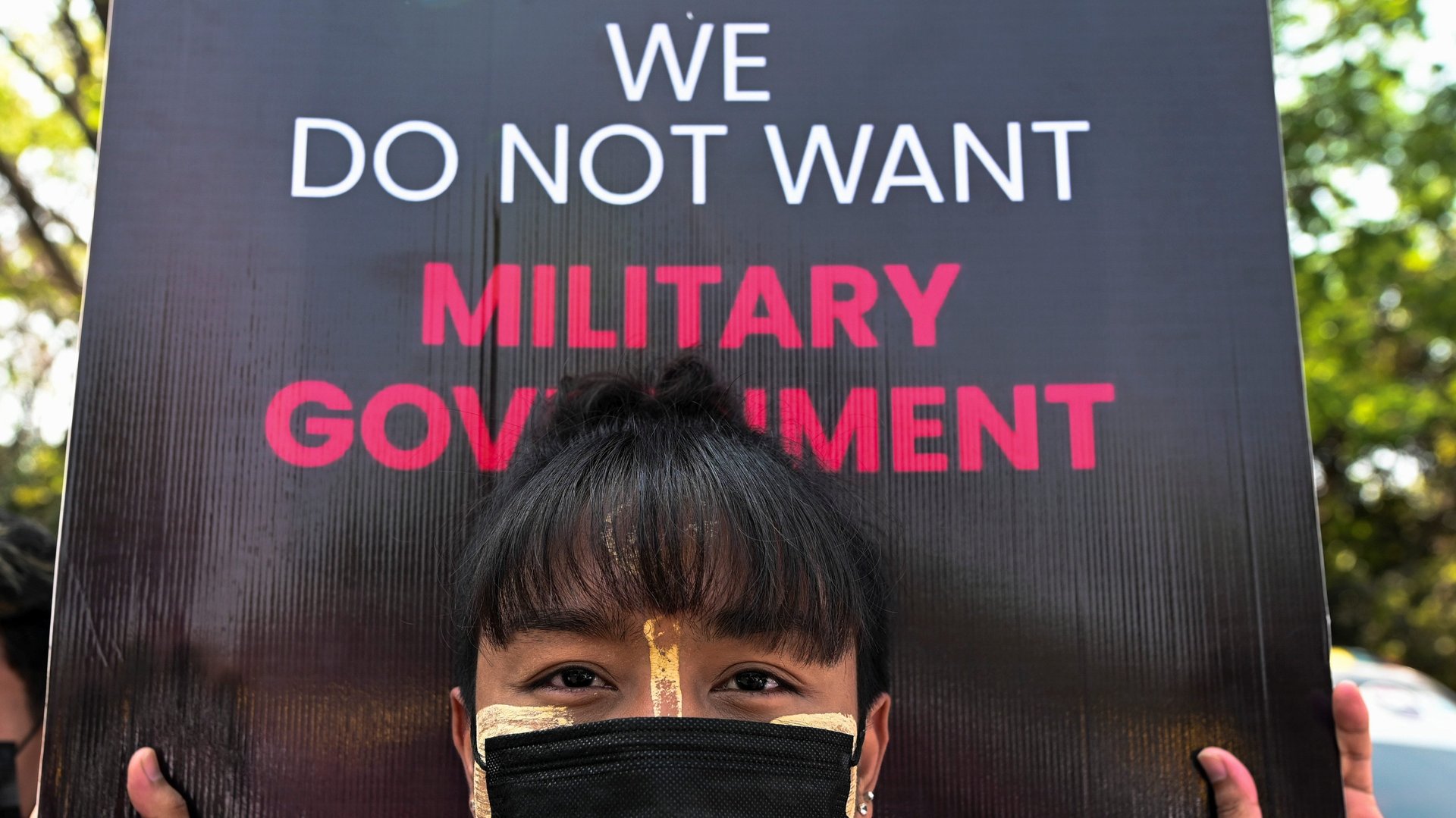Clothing companies have a rare opportunity to be a force for good in Myanmar
Fashion companies have often been criticized for relying on low-paid workers in some of the world’s poorest countries to make their clothes. In Myanmar, they now have an opportunity to use their presence in that country to be a force for good.


Fashion companies have often been criticized for relying on low-paid workers in some of the world’s poorest countries to make their clothes. In Myanmar, they now have an opportunity to use their presence in that country to be a force for good.
On Feb. 1, the Myanmar military seized control of the government after voters in the recent election overwhelmingly supported the party of popular leader and tarnished democracy icon Daw Aung San Suu Kyi. Since coming into power in 2015, Aung San Suu Kyi had maintained a delicate peace with the military, which ruled Myanmar for decades before finally starting to ease its grip in 2010. Protesters denouncing the coup have filled the streets, defying the increasingly violent response from the military, which has killed dozens of civilians.
Among those leading a general strike are workers from Myanmar’s rapidly growing garment industry. Clothing exports have become vital to the country’s economy, totaling more than $5 billion in 2019, according to World Trade Organization data, and accounting for more than 30% of total exports. The situation gives fashion companies sourcing in the country significant collective leverage, and a chance to use it in positive ways.
Clothing firms have been flocking to Myanmar in recent years for its low wages and advantageous trade relationship with the European Union. Sweden’s H&M lists 42 manufacturing factories in the country on its published list of suppliers. Primark in the UK sources from 21 factories in the country, and Next, also from the UK, buys from 40 factories (pdf). Fast Retailing, parent company of Japan’s Uniqlo, lists six factories (pdf) in Myanmar among its suppliers. Most of the clothing leaving the country goes to Europe, Japan, and the US.
How fashion companies can support workers in Myanmar
These businesses can use their influence in various ways. One of the most important would be to declare publicly they won’t accept workers at supplier factories being fired or disciplined for joining in the pro-democracy protests. Worker unions have asked for this step, saying their members can face intimidation and threats such as firing or salary cuts, even if they use holiday leave for time off. “This is the time for brands to help the workers of Myanmar, because workers and our country need democracy,” Ma Moe Sandar Myint, chairwoman of the Federation of Garment Workers of Myanmar, told Vogue Business (paywall).
Trade associations representing international fashion companies have already called for the military to restore the civilian government and release detained officials. A joint statement by the Ethical Trade Initiative, American Apparel & Footwear Association, Fair Labor Association, and other groups also listed steps individual companies should take. These include severing ties with businesses directly or indirectly controlled by Myanmar’s military, cooperating with suppliers to make sure workers are both safe and financially secure, giving suppliers leeway on contract or delivery terms due to all the disruptions in the country, and keeping a direct dialog with trade unions and worker representatives.
International fashion companies have generally said little so far on how they’re responding, though Reuters reported today that H&M is pausing new orders in the country. H&M’s Myanmar manager said the company wasn’t making any long-term decisions yet and temporarily stopped orders “due to practical difficulties and an unpredictable situation” that has caused issues importing raw materials and transporting finished clothing.
The crisis, meanwhile, keeps escalating. If there’s a moment for companies to step up, it’s now.